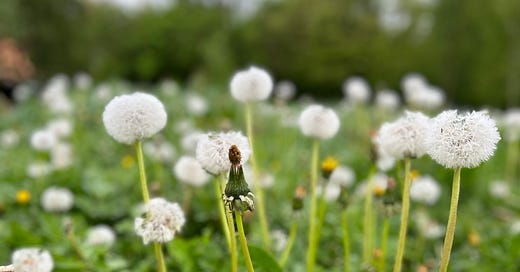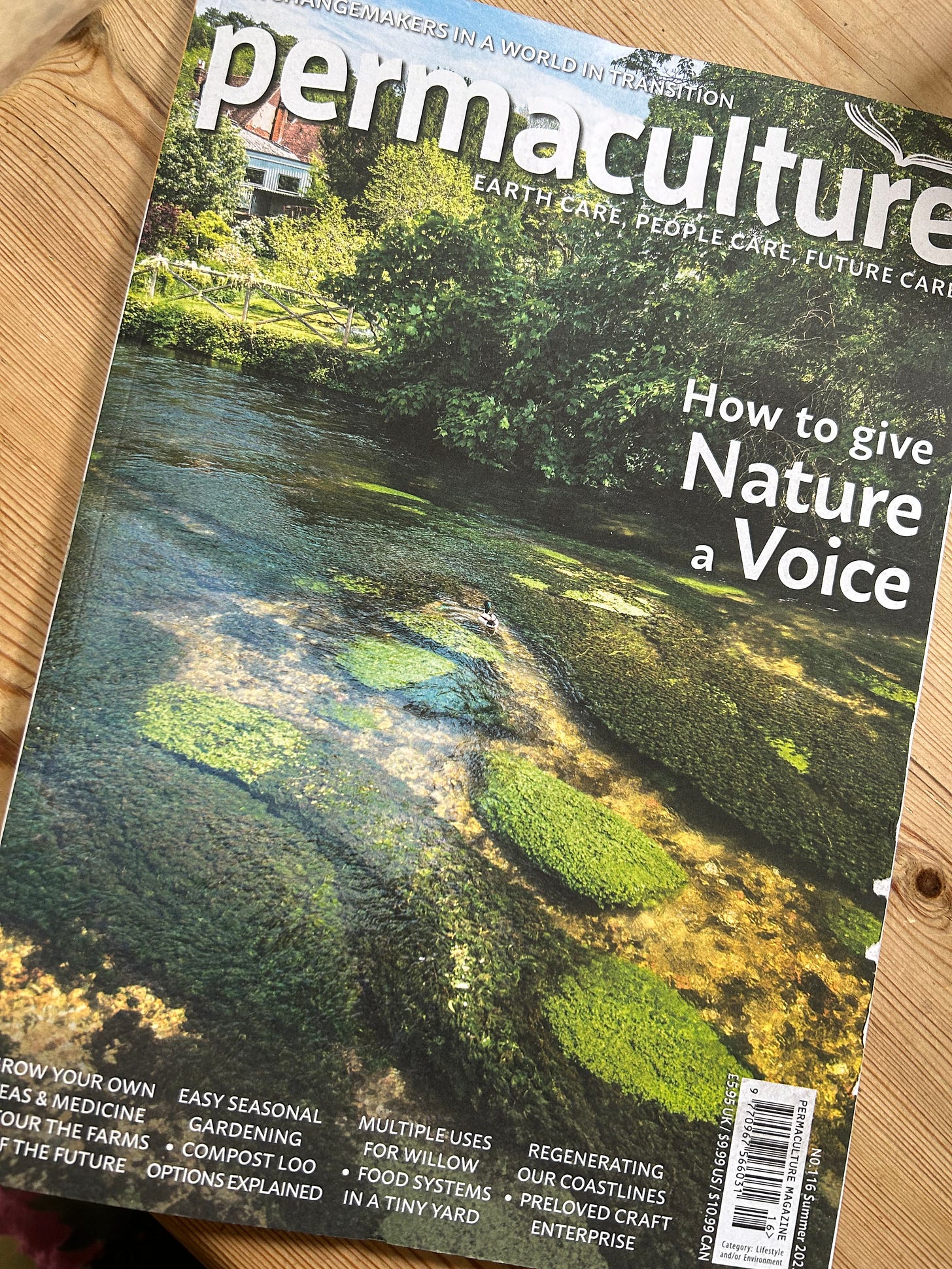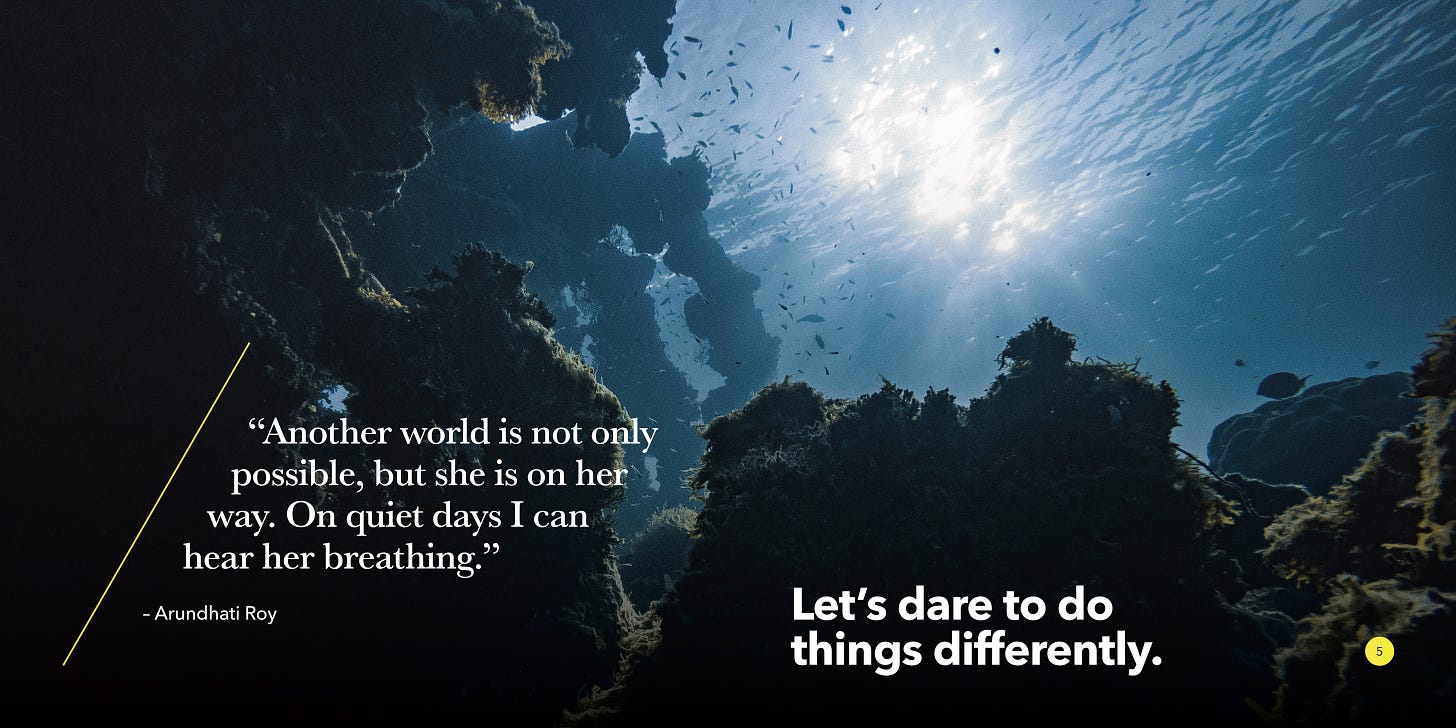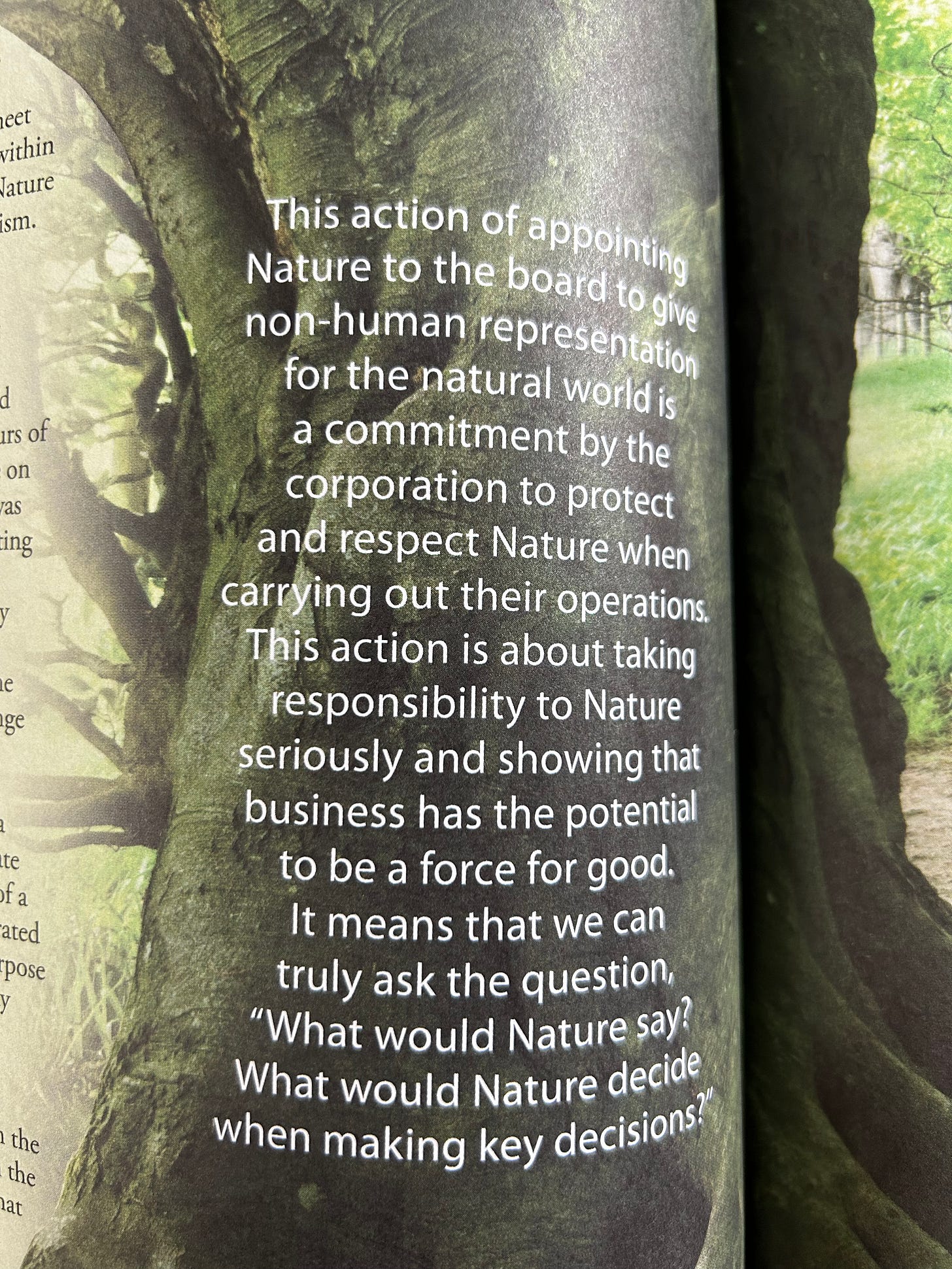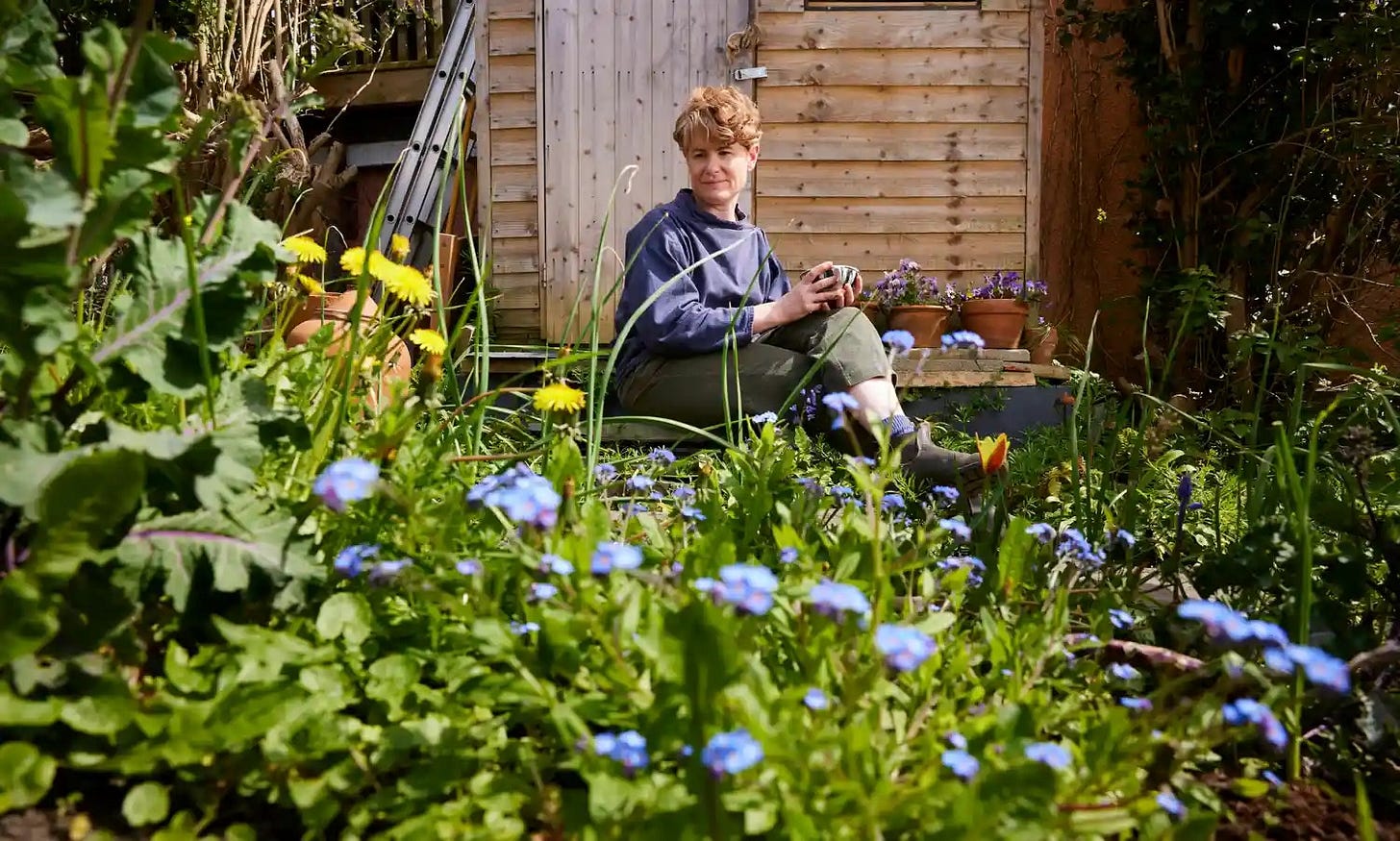How to give nature a voice ...
Acknowledging the Rights of Nature in organisations and projects.
Delighted to read Giving Nature a Voice by Brontie Ansell in the latest edition of the Permaculture magazine where she explores how to appoint Nature as a company director, how that works legally, and the impacts of such a radical shift in mindset. Something that resonates so well with the nature-positive work we are doing and with our conversations on Zoom Regenerative
Welcome to Regen/Notes1
Regen Notes has previously highlighted that Faith in Nature had formally appointed nature as a board member. And through my work I often (too often (?) and occasionally during audits) ask the question - if nature had a place on your project team or in your business what would it be saying, how would you listen and act on what you hear?
In The Regenerative Playbook we used the fabulous quote from Arundhati Roy and a challenge to dare to do things differently. Really giving nature a voice in organisations, as implemented by Faith in Nature is surely a sign that another world is on her way and an example of doing things differently …
From the excellent Permaculture article …
In September 2022, Lawyers for Nature CIC (of which Brontie is director) worked with the eco and ethical beauty products company Faith in Nature to appoint Nature to their board of directors. This strategic legal move aims to elevate the rights of Nature discussion to the corporate level and give a voice and vote to Nature within the powerful corporate environment.
Appointing a Guardian
We used the permissive nature of corporate law in England and Wales combined with the role of a non-executive director (a ‘NED’) to appoint a ‘guardian’ to the board who’s role was to give a voice and a vote to Nature.
What does it mean in practice? Brontie highlights the practical steps Nature Guardian Directors take, including
attend board meetings once a month.
amended the purpose clause of the company to endorse a legal duty to protect Nature.
host conversations with both the senior team members and any employees
hold educational days for teams within the business to discuss concepts like Rights of Nature, Nature positivity, planetary boundaries, Earth law and ecocentrism.
add transparency provisions to ensure that the board is held accountable in the public sphere for their decisions when they disagree with the Nature Director’s recommendations.
Recognition of Rights of Nature means that we are starting to recognise that all life forms, humans included, are connected and entangled. The decisions and values that we uphold ahould be based on what is good for the whole of the planet, not just humans. RoN means that we must stop treating Nature as property of humans, where it can be destroyed at will, and instead recognise Nature as having its own legal personhood with its own rights and remedies.
Rights of Nature?
Rights of Nature is a legal and philosophical concept that recognises the natural world as a living entity with inherent rights, similar to those possessed by human beings. It is based on the idea that nature has intrinsic value and should be protected and respected for its own sake, rather than being viewed solely as a resource to be exploited for human benefit.
The concept of Rights of Nature can be extended to cover only seeing and exploiting nature just as a source for human wellbeing or to enhance biophilic design. It has that intrinsic value to exist for its own right. The rights of nature is not meant to completely separate humans from nature, but rather to acknowledge the interdependent and reciprocal relationship between humans and the natural world.
There are several examples of natural features across the world that have been awarded legal status, including
The Whanganui River in New Zealand granted legal personhood status
The Atrato River in Colombia also granted legal personhood status to protect it from pollution and other threats.
The Ganges and Yamuna rivers in India were granted legal personhood status
The Te Urewera National Park in New Zealand is recognized as a legal entity with its own rights and interests.
The Great Barrier Reef was recognised by the Australian government as a "legal person" in its own right
The Vjosa River in Albania has also been the subject of legal recognition efforts with the Albanian parliament passing a law that granted the Vjosa River and its tributaries legal protection
Listen to the Weeds
All that laboured effort – the weeding, the fertilising, the digging, the tending and pruning, the selecting and conforming – it’s not working. Not for the plants, the soil or the community around them, which includes you and me. Indigenous cultures everywhere have based their practices on observing and honouring the ecology, while we in the “developed world” wrote down our rules.Ditch your spade, forget fertiliser, listen to the weeds: Alys Fowler’s guide to laid-back gardening (Guardian).
Learning from Indigenous Wisdom
Robin Wall Kimmerer in Braiding Sweetgrass: Indigenous Wisdom, Scientific Knowledge, and the Teachings of Plants talks of how, in indigenous ways of knowing, all beings are recognised as non-human persons, and all have their own names. It is a sign of respect to call a being by its name, and a sign of disrespect to ignore it. As I learn the plant's stories, I am struck by their wisdom, their generosity in sustaining us, and their creativity.
They have so much to teach us, if we are only willing to listen."
Previous articles on Regen/Notes can be explored here

